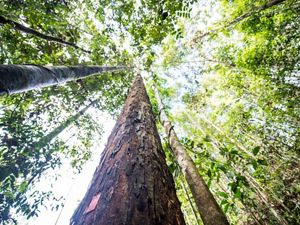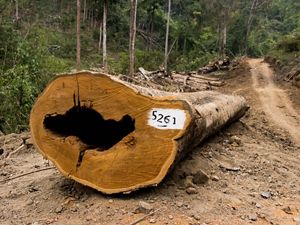Ant Forest
Looking over the landscape, the trees are as small as ants but will eventually grow into a forest.
Colossal tree planting projects are nothing new in China. For over four decades, the government has set about building a “Green Great Wall” of pines and poplars to reclaim areas of land lost to farming, clear-cutting and desertification. But in recent years, app-wielding urban millennials from Beijing to Kunming who are concerned about air quality and climate change are driving reforestation efforts from their smartphones.
Ant Forest is an enormously successful tree planting initiative launched in 2016 by Ant Financial Services Group, an Alibaba affiliate. The campaign has engaged a mind-warping 500 million Chinese users in “gamified, participatory pro-environmental communication.” Or simply put: Consumers collect “green energy points” on Alipay, the world’s top mobile payment platform, when they opt for low-carbon lifestyle choices — from renting shared bikes and using mass transit to holding videoconference meetings instead of commuting to an office. Amass a certain amount of points, and Ant Forest plants a real tree, the location of which users can view via satellite.

TNC China has contributed scientific expertise on reforestation, provided oversight on planting efforts, and developed Ant Forest’s carbon-accounting methodologies for tree planting and protected lands. This spring, TNC field staff led tree planting efforts in Yunlong Tianchi Nature Reserve in Yunnan province, China, home of the endangered Yunnan Golden Monkey. With over 100 million trees planted and nearly 8 million tons of CO2 emissions avoided, Ant Forest earned the added distinction of the 2019 Champions of the Earth Award, the UN’s highest environmental honor, at the Secretary-General’s Climate Action Summit in New York this fall.




